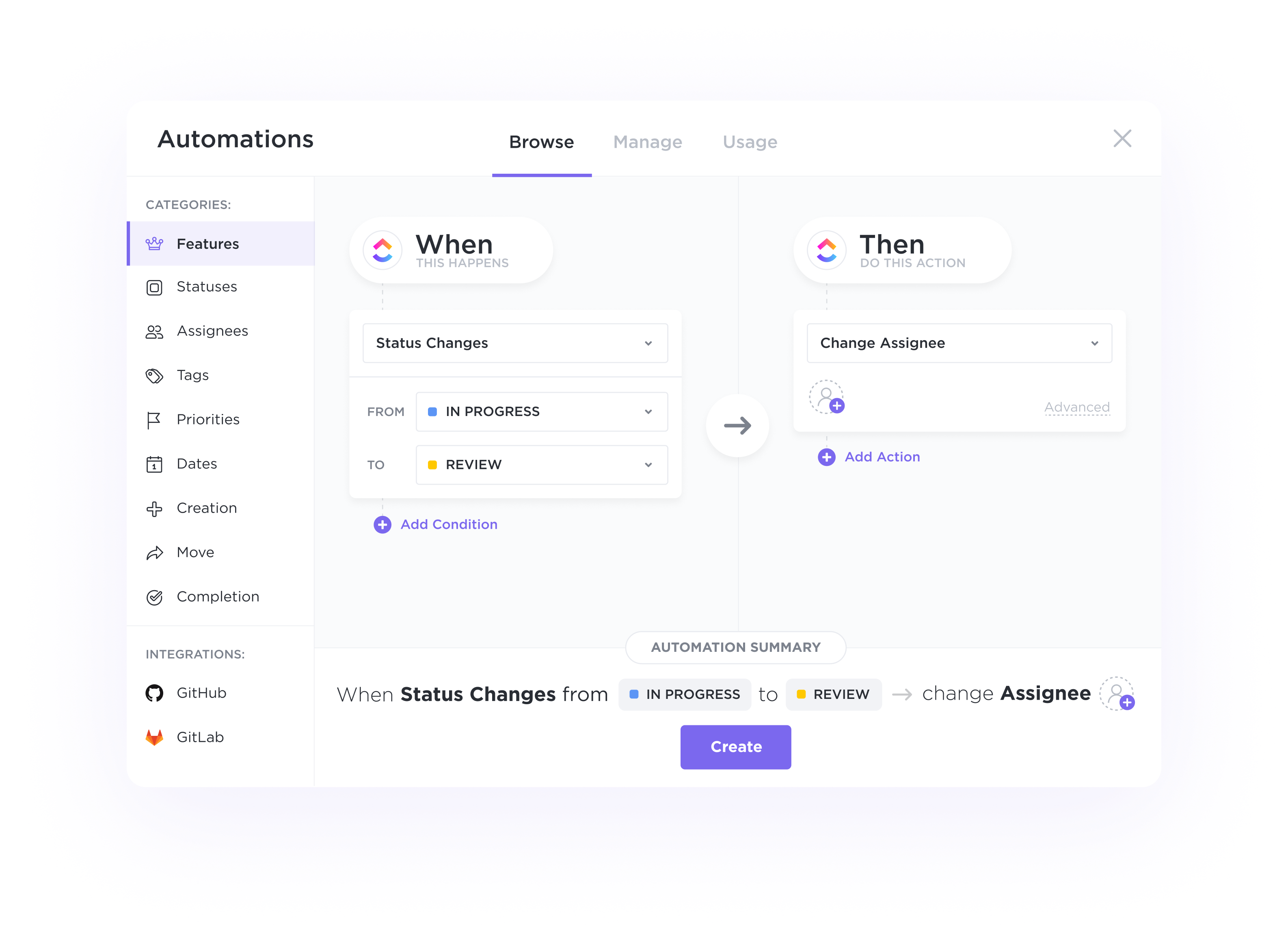Automate handoffs, status updates, and more.
Automatically assign tasks for each stage of your pipeline, trigger status updates based on activity, and switch priorities to alert your team on where to focus next.

Streamline your customer interactions with our cutting-edge CRM software tailored specifically for Food Manufacturers. ClickUp's intuitive platform empowers you to effortlessly manage and nurture client relationships, all in one place. Revolutionize your customer management process today with ClickUp.
Free forever.
No credit card.
Trusted by the world’s leading businesses
Automatically assign tasks for each stage of your pipeline, trigger status updates based on activity, and switch priorities to alert your team on where to focus next.

Manage everything from sales pipelines, customer engagement, and orders with ClickUp's 10+ highly flexible views. Easily track and manage your accounts on a List, Kanban Board, Table view, and more.

Key features of CRM software that can benefit food manufacturers include inventory management, order processing, supplier relationship management, customer communication tools, and analytics for sales and marketing performance tracking.
CRM software can assist food manufacturers in managing their supply chain and inventory by providing real-time visibility into inventory levels, streamlining order processing, optimizing supply chain logistics, and facilitating better demand forecasting to reduce stockouts and overstock situations.
CRM software can assist food manufacturers in tracking and managing customer feedback and complaints by providing a centralized system to collect, organize, and analyze customer comments and issues.